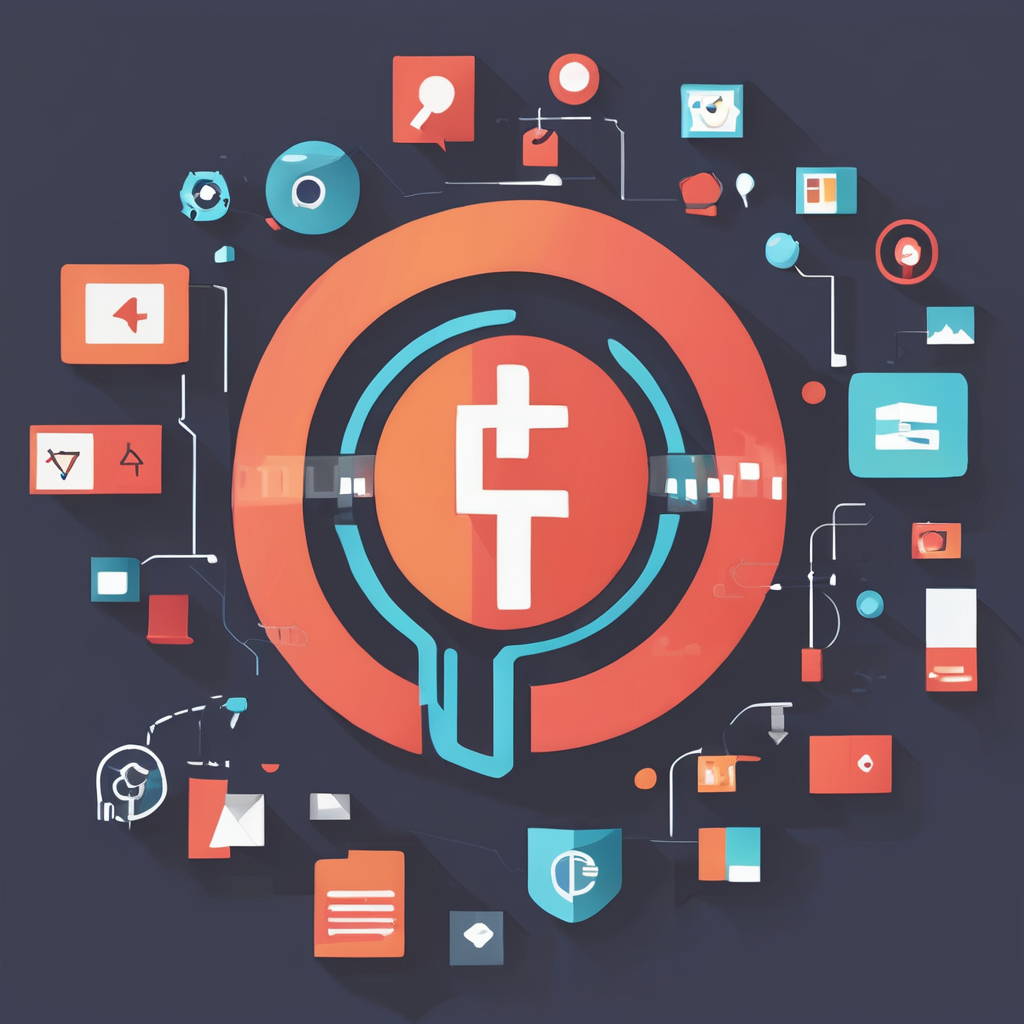Introduction to Blockchain Technology in Gaming
Blockchain technology is revolutionising the gaming industry, offering enhanced security and more efficient transaction systems. As players interact in virtual worlds, the need for safeguarding transactions and assets becomes paramount. Blockchain provides an immutable ledger system, ensuring that once a transaction is recorded, it cannot be altered or erased, thereby bolstering gaming security.
The gaming industry has traditionally grappled with transaction vulnerabilities, such as fraud and data breaches. In many games, players exchange or purchase in-game assets, which often require trust in centralised servers that can be susceptible to hacks. Blockchain technology eliminates this single point of failure by distributing data across a network, making it significantly harder for malicious entities to compromise.
In the same genre : Top Strategies for Creating Authentic Traffic Systems in Urban Simulation Games
Incorporating blockchain into gaming not only secures transactions but also decentralises power, returning control to the players. Players can verify each transaction and own their digital assets without relying on third-party verification. This transparency builds trust, enhancing the overall gaming experience.
A robust transaction system is crucial for the industry’s future, as gaming continues to expand into new technologies like virtual reality. As more players make digital purchases, the demand for secure and efficient methods, like those provided by blockchain, becomes imperative, ensuring fair and transparent interactions.
Additional reading : Mastering Realistic Forest Vegetation: Top Techniques for Immersive Exploration Games
Benefits of Blockchain for Secure Transactions in Gaming
The benefits of blockchain in the gaming industry are significant and transformative, especially regarding transaction security. By providing an immutable and transparent ledger, blockchain ensures that all transactions are recorded unchangeably and transparently for both players and developers. This enhances the trust factor, as every transaction can be traced and verified without dispute.
In addition to transparency, the decentralization inherent in blockchain technology significantly reduces the risk of fraud. Traditional centralized systems are often vulnerable to hacking and manipulation, leading to substantial financial losses and trust issues among users. However, by decentralizing the process, blockchain minimizes these risks, as it requires consensus across multiple network points to validate transactions.
Moreover, immutable records mean that once data is added to the blockchain, it cannot be altered or deleted. This feature is crucial for maintaining the integrity of the gaming ecosystem. Players can confidently trade in-game assets or currency, knowing their transactions are secured and tamper-proof. Developers benefit too, as it reduces customer disputes and fosters a trustworthy environment.
By harnessing these advantages, the gaming industry can enhance user experience and drive growth, establishing blockchain as a cornerstone for secure and transparent transactions.
Case Studies of Gaming Platforms Utilizing Blockchain
Exploring how blockchain gaming platforms are making waves, we delve into notable use cases and industry examples. These instances highlight the transformative power of blockchain in the gaming sector.
Platform A: Implementation and Impact
Platform A demonstrates a pioneering approach by incorporating blockchain to enhance gaming transactions. This implementation facilitates transparent and immutable record-keeping that bolsters trust between players and developers. The primary impact of this blockchain gaming platform is the seamless integration of cryptocurrency transactions, allowing players to trade assets with ease and reducing fraudulent activities within the landscape.
Platform B: Unique Features Enhancing Security
Platform B stands out by incorporating unique features that enhance transaction security. By utilising blockchain’s inherent encryption, this platform ensures that all player data and exchanges are highly secure from potential cyber threats. This prevents unauthorized access and protects user information, creating a safer gaming environment with real-time auditing capabilities that significantly reduce the risk of data manipulation.
Platform C: Comparative Analysis with Traditional Systems
Platform C offers a compelling comparative analysis between blockchain-enabled systems and traditional gaming transactions. Unlike conventional models that often require centralized control, blockchain gaming platforms allow for decentralized operations, minimizing intermediary costs and speeding up transaction times. This highlights a drastic improvement in transparency and player autonomy, attracting a new wave of users.
Challenges and Limitations of Blockchain in Gaming Transactions
In the burgeoning world of gaming transactions, blockchain technology presents intriguing possibilities but also notable challenges. Foremost among these is scalability, a critical issue impacting transaction speeds. As blockchain networks grow, the number of transactions processed per second can become sluggish, creating significant gaming transaction hurdles. Gamers require seamless experiences, and any latency could disrupt their engagement, hence scalability remains a top concern.
Furthermore, regulatory and compliance hurdles pose significant limitations. The decentralized nature of blockchain can conflict with national and international regulations, which often demand transparency and oversight. Navigating these legal landscapes demands sophisticated compliance mechanisms, which can be costly and complex for developers. This makes the adoption of blockchain in gaming transactions a cautious venture.
Integration challenges with existing gaming infrastructures add another layer of complexity. Many gaming platforms have established ecosystems that may not easily accommodate blockchain’s distributed ledger systems. This necessitates substantial modifications or outright redesigns, which not only require technical expertise but also significant investment.
Thus, while blockchain offers the promise of secure, transparent gaming transactions, overcoming these challenges—scalability, regulatory compliance, and system integration—will be vital for its future success in the gaming industry.
Expert Opinions on Blockchain and Security in Gaming
The integration of blockchain technology into gaming has sparked a wide array of expert insights. Industry leaders are increasingly recognising blockchain’s potential to drastically enhance game security through transparency and decentralisation. Interviews with blockchain experts reveal that many view it as a revolutionary step towards secure gaming environments.
Notably, there is a consensus among these experts that blockchain can mitigate fraud and hacking risks, providing players with a secure and fair gaming platform. For instance, by recording transactions on immutable ledgers, blockchain ensures that all in-game transactions are transparent and trustworthy. This, experts argue, is crucial for the gaming sector, where trust and security are paramount.
Industry opinions differ, however, on the extent of blockchain’s adoption in gaming. Some are optimistic, predicting widespread use in the coming years. Others advise caution, highlighting the challenges related to scalability and the need for significant development to meet gaming demands.
For developers and players navigating this evolving landscape, awareness is key. Experts stress the importance of staying informed about blockchain advancements and understanding both its benefits and limitations. They recommend continuous learning and adaptation to fully leverage blockchain’s potential while maintaining robust security practices.
Future Trends of Blockchain Technology in Gaming
As the future of blockchain unfolds, it promises to reshape numerous facets of the gaming industry. Primarily, gaming innovations are expected to be more immersive and player-centric. Players will likely enjoy genuine ownership of in-game assets, thanks to blockchain’s transparent and secure ledger system. This will grant unprecedented levels of control and interaction with digital environments, fostering a market for virtual collectibles and exclusive content.
Moving forward, the evolution of transaction security in gaming will become increasingly sophisticated. Blockchain inherently provides a secure mechanism for processing transactions, but as it merges with emerging technologies, it is set to enhance user trust and safety even further. Advances in encryption protocols and decentralised finance could make hacking and fraud considerably more difficult, safeguarding both player data and digital currency.
There’s also a growing synergy between blockchain and AI, which holds promise for the gaming sector. The integration of AI could enhance decision-making, automate various gaming processes, and provide personalised experiences. As these technologies mature, their joint application is likely to transform the gaming landscape, offering more seamless and engaging gaming experiences. This fusion could potentially redefine gaming commerce, making it more dynamic and intuitive than ever before.
Practical Implications for Developers and Players
Navigating the blockchain landscape in gaming requires a balance between innovation and security. Developers should adhere to established developer guidelines to seamlessly integrate blockchain. Prioritizing player safety and implementing robust security measures are essential to protect users’ data and assets.
Recommendations for Developers
When diving into blockchain, it is crucial for developers to consult authoritative sources for guidelines that reflect industry standards. This approach helps ensure secure transactions by using reliable cryptographic protocols and following best practices for blockchain security. Developers must perform rigorous testing to identify vulnerabilities before launching any blockchain-based feature.
Best Practices for Players
For players, safeguarding their own transactions is equally important. Practicing vigilance by only engaging with trusted platforms and using wallets designed for gaming environments can mitigate risks. Regularly updating security software and understanding potential threats ensures a safer experience in this rapidly evolving space.
Educational Resources
A plethora of educational resources is available for both developers and players interested in blockchain’s role in gaming. Online courses, forums, and workshops provide valuable insights and foster a trustworthy environment. By fully understanding both the technological and security aspects of blockchain, stakeholders can confidently utilize its benefits and drive the industry forward.











